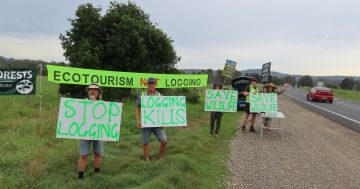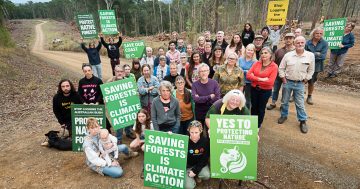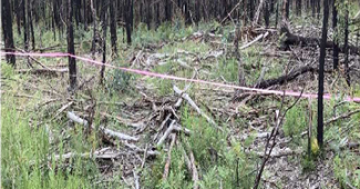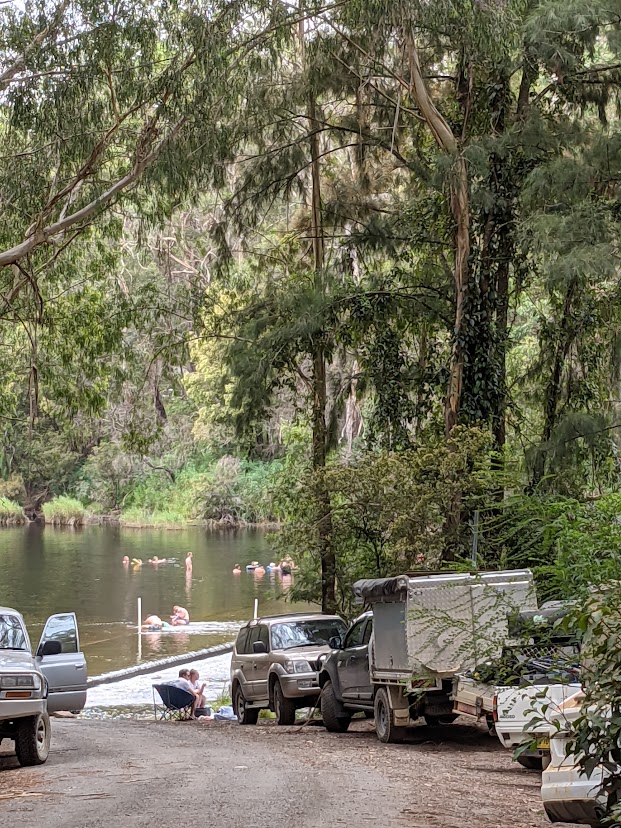
Swimmers at Shallow Crossing on 26 January. Photo: Brooman State Forest Conservation Group.
Residents and forest advocates fear there’s a tragedy waiting to happen at Shallow Crossing.
Ongoing logging in the state forest has meant logging trucks are now a regular feature on the narrow, dirt roads, and over the river crossing.
The causeway is near a privately-owned campground that is very popular over holiday weekends, in part because the causeway provides safe swimming and water play opportunities for children and families.
Residents, including owners of the Clyde River Berry Farm and the Shallow Crossing Campground, have written to Shoalhaven City Council to raise their concerns – and request logging cease during busy holiday periods, such as Easter.
Friends of the Forest Mogo are also part of the push. Community liaison Joslyn van der Moolen said there had to be a better approach.
“There was logging throughout the summer school holidays, we have the March long weekend coming up and then the Easter school holidays,” she said.
“During these busy periods logging trucks are coming through from the Princes and Kings Highways on unmarked dirt roads with cars, trailers and caravans and on the way back they’re fully loaded coming around blind corners on those same roads.
“It’s just asking for trouble.”

A loaded truck crosses the causeway at Shallow Crossing. Photo: Boss Logging Facebook.
A spokesperson for the council confirmed they had received the petition, but said it was a matter for Forestry Corporation.
A spokesperson for the corporation provided the following response:
“Forestry Corporation has been operating in Shallow Crossing State Forest since 2019 for sustainable timber harvesting and no complaints or issues have been raised with us over this time regarding the use of the crossing,” the spokesperson said.
“Historically the Shallow Crossing Causeway crossing has been used for forest management activities.
“The crossing is a public road and designed to carry heavy vehicles without damage.
“Trucks cross at very low speeds, representing a very low risk.
“Sustainable timber harvesting operations are taking place adjacent to the crossing and the route used is the most direct to access the Princes Highway, using mostly state forest roads.
“If the public have any concerns on driver behaviour, we encourage them to contact us directly to investigate.”
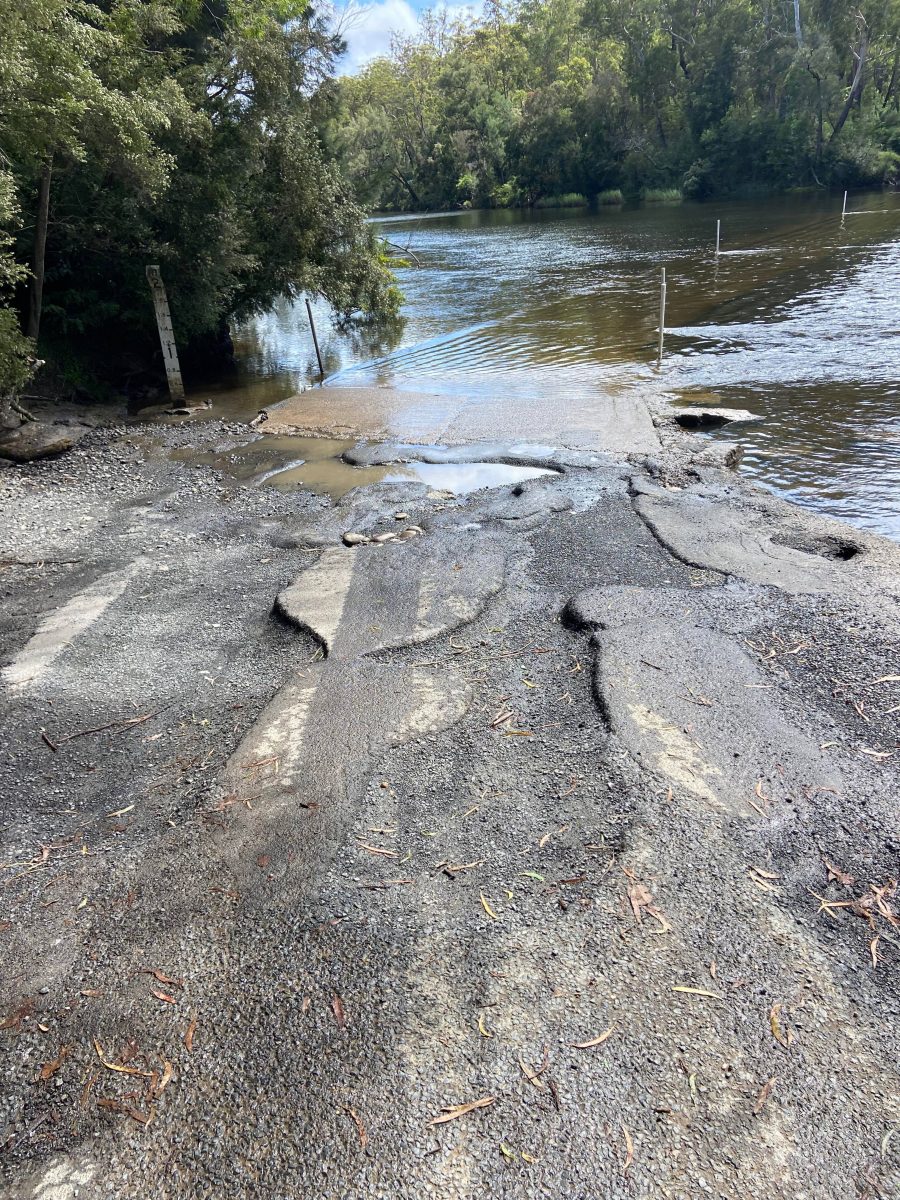
Damage to the road on the western side of Shallow Crossing. Photo: Brooman State Forest Conservation Group.
Ms van der Moolen was sceptical.
She says the land is public, and logging companies are not entitled to operate there – and questioned the sustainability of the logging operation.
“This is public land, Forestry staff arrange access for logging companies to cut trees,” she said.
“They’re not selected or grown for processing into construction timber.
“They’re mostly used for woodchips, pallets or firewood, and up to 65 per cent of the tree is left on the forest floor. It’s very wasteful.”
“This year we’ve taken five or six politicians into the forest, and the first thing they all say is, ‘This is so inefficient’ and ‘There is so much waste’.”
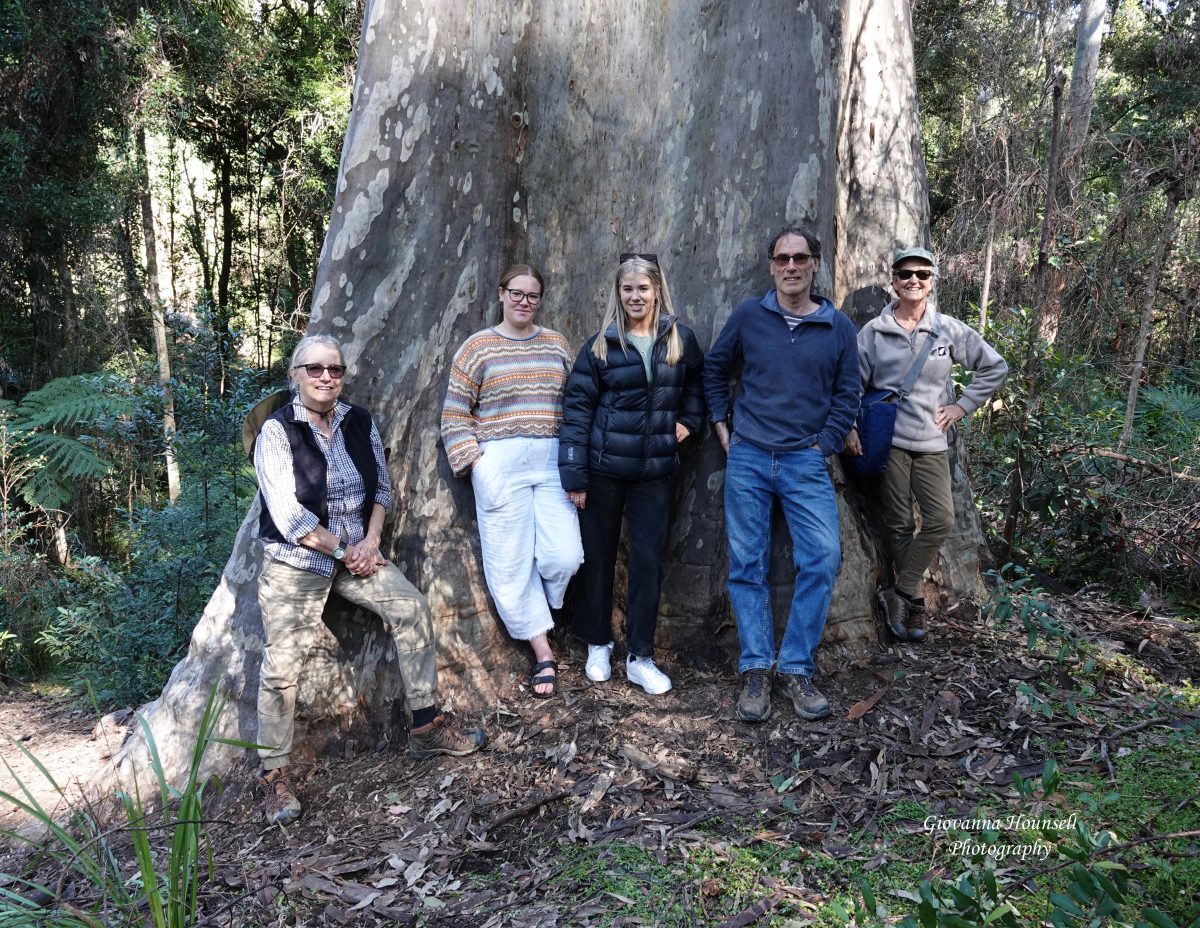
Friends of the Forest Mogo are worried about what might become of ‘Big Spotty’. Photo: Giovanna Hounsell.
The group is also concerned about the fate of ‘Big Spotty’ – which at 72 metres is possibly the tallest spotted gum in the world.
The section of forest it grows in is marked for logging – and while ‘Big Spotty’ will be protected, the damage to its home will leave it vulnerable.
Ms van der Moolen believes a commitment to plantation forestry would protect jobs in the logging industry, protect our precious trees and wildlife, provide better quality timber, and leave public forests for the enjoyment of locals and visitors.
“Efficient forestry is in a plantation,” she said.
“You select the right species, it grows fast, you don’t have the features of a wild forest that get in the way, like creeks, and it’s near industry hubs.
“It’s a crop and it needs to be managed as a crop.”






